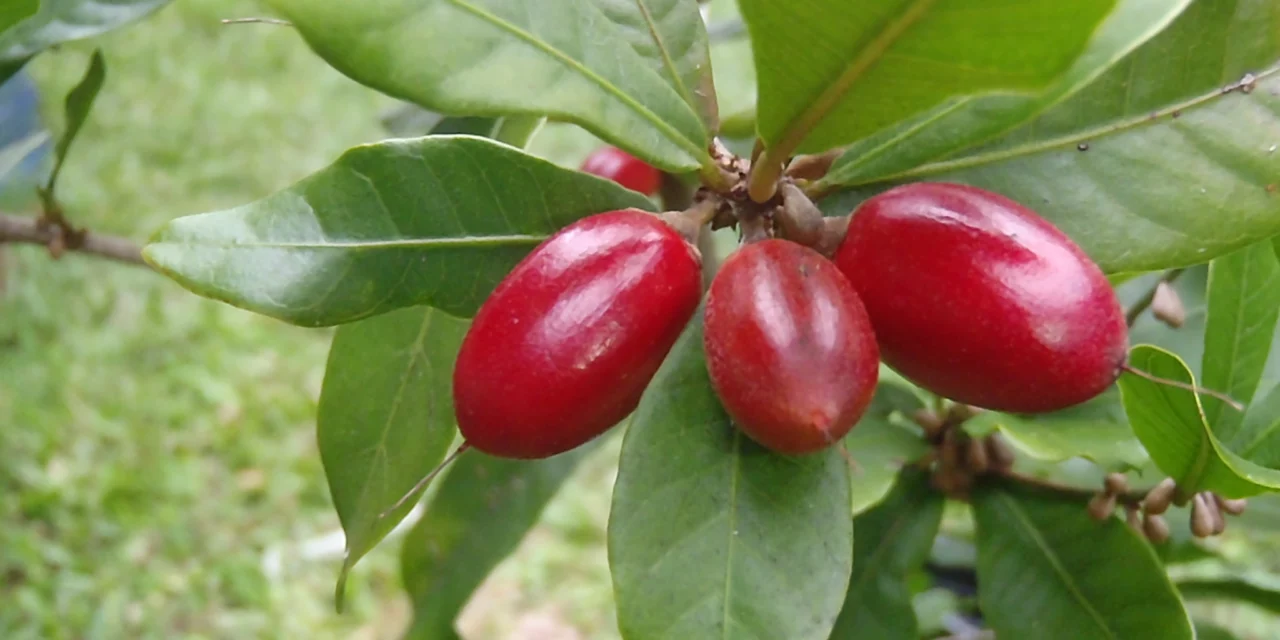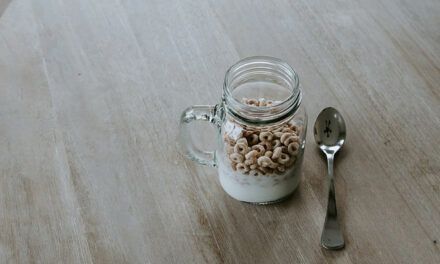The world of diabetes management is constantly evolving, and one particularly intriguing development is the potential role of miracle berries in this arena. This small red fruit, native to West Africa, has gained attention for its unique ability to temporarily alter taste perception, making sour or acidic foods taste sweet. But what does this mean for individuals living with diabetes? Could miracle berries be the key to a new approach in managing blood sugar levels? And, what are the effects of miracle berries on diabetes?
In this article, we will explore the fascinating connection between miracle berry and diabetes, going through both the potential benefits and considerations that you should keep in mind when contemplating its use as part of their diabetes management strategy.
What Is a Miracle Berry?
Miracle berry, also known as Synsepalum dulcificum, is a fascinating fruit that has been gaining attention for its unique ability to alter taste perception. When the pulp of the miracle berry is consumed, it temporarily changes the way sour and acidic foods taste.
These foods, typically perceived as tart or sour, are transformed into sweet and delicious flavors thanks to a protein called miraculin found in the fruit. This remarkable phenomenon has captured the interest of food enthusiasts and researchers alike, sparking a wave of curiosity about its potential applications.
Beyond its novelty as a taste-altering fruit, miracle berries have also garnered interest for their potential role in addressing sugar consumption and health-related issues.
With its unique characteristic of enhancing sweetness without the need for added sugar, some experts see potential in using miracle berries to help reduce sugar intake and manage conditions such as diabetes and obesity.
Even chefs and foodies are actively seeking creative methods to include miracle berries into culinary experiences, opening up fresh possibilities for flavor discovery and pleasure.
What Are Miracle Berry Tablets?
Miracle berry tablets are a convenient form of the miracle berry’s active ingredient, miraculin. These tablets are typically made by extracting the miraculin from the fruit and then processing it into a powdered form, which is then compressed into tablets for easy consumption.
The tablets work in much the same way as consuming the fresh miracle berry fruit. When dissolved on the tongue, the miraculin in the tablets binds to taste receptors, temporarily altering taste perception. Sour and acidic foods that would typically taste tart or sour are transformed into sweet flavors, providing a unique culinary experience without the need for added sugars.
Please note that while the miracle berry can alter the perception of taste, it does not reduce the actual acid content of foods. So, if you have conditions like acid reflux or stomach ulcers, consuming acidic foods, even with the miracle berry, might still cause discomfort.
Health Claims
Studies have suggested that the miracle berry can help regulate blood sugar levels and improve insulin sensitivity. The miraculin protein within the fruit is believed to have a sweetening effect without increasing blood glucose levels, making it potentially beneficial for people with diabetes.
While these findings are promising, it’s important to approach the health claims regarding miracle berries and diabetes with caution. More research is needed to fully understand the potential impact of this fruit on diabetes management.
Moreover, before including miracle berries in their diet as part of a diabetic control strategy, people should speak with their healthcare professional. Although there are many exciting potential benefits associated with the miracle fruit, more research and clinical trials are required to fully understand its true efficacy in managing diabetes.
Taste Perception And Sweetness Enhancement
Miracle berry’s ability to modify taste perception, especially by intensifying sweetness without added sugars, presents a unique opportunity for individuals managing diabetes. By making sour or acidic foods taste sweeter temporarily, it offers a novel approach to diversifying flavors without impacting blood sugar levels significantly.
Point to be noted: Individual responses to miracle berry’s taste-altering effects can vary. While many individuals may experience enhanced sweetness, some may not perceive the same level of flavor modification.
Glycemic Impact
While the miracle berry itself is low in carbohydrates and sugar, its potential impact on blood sugar levels for diabetics remains a subject of research and discussion.
Some researchers suggest that incorporating miracle berry into the diet of diabetics may help reduce their overall glycemic load by making certain foods more palatable without adding additional sugar or sweeteners.
However, caution must be exercised as individual responses may vary and more studies are needed to fully understand its effects.
Success Stories
The use of miracle berry in managing diabetes has yielded some astonishing success stories, challenging traditional approaches to the condition. Many individuals have reported significant improvements in their blood sugar levels after incorporating miracle berry into their diets.
Anecdotal evidence suggests that individuals with diabetes are exploring the use of miracle berry to regulate their sugar consumption. This fruit offers sweetness without the need for added sugar, potentially aiding those monitoring their blood glucose levels.
Furthermore, early research indicates that miracle Berries may harbor compounds that enhance insulin sensitivity. This not only presents a solution for sugar management but also hints at future possibilities for diabetes therapies.
Safety Concerns And Risks
While Miracle Berry shows promise as a potential aid in managing sugar intake and enhancing taste perception for individuals with diabetes, there are important safety considerations and potential risks to be aware of:
- Effectiveness
While anecdotal evidence suggests benefits, the actual effectiveness of miracle berry for diabetes management hasn’t been extensively studied in clinical settings. Therefore, its true impact on blood sugar control remains uncertain.
- Individual Variability
Responses to miracle berry can vary among individuals. Some may experience significant sweetness enhancement, while others may not perceive the same level of taste modification. This variability could affect its usefulness as a consistent tool for diabetes management.
- Glycemic Impact
While miracle berry itself is low in carbohydrates and sugar, its consumption alongside other foods may still somewhat impact blood sugar levels.
- Long-Term Safety
Limited research exists on the long-term safety of miracle berry consumption, particularly in the context of diabetes management. More studies are needed to assess any potential adverse effects associated with prolonged use.
- Allergic Reactions
While rare, allergic reactions to miracle berry are possible. Individuals with known allergies to similar fruits or compounds should exercise caution or avoid miracle berry altogether.
- Dietary Considerations
Using miracle berry to sweeten foods may lead to increased consumption of certain foods, potentially affecting overall dietary balance and nutritional intake. It’s essential to maintain a well-rounded diet and not rely solely on miracle berry for flavor enhancement.
Giving a call to your healthcare consultant and monitoring blood sugar levels closely are essential steps to ensure their safe incorporation into a diabetes management plan.
Potential Interactions With Medications
While there is limited research on specific interactions, individuals should exercise caution and consult with their healthcare provider before incorporating miracle berry into their regimen, especially if they are taking the following types of medications:
- Oral Hypoglycemic Agents
Miracle berry’s ability to enhance sweetness without adding sugar could potentially impact the effectiveness of oral hypoglycemic agents, which are medications taken by mouth to lower blood sugar levels.
Changes in taste perception may affect medication adherence or alter dosage requirements.
- Insulin
For individuals using Insulin therapy to manage diabetes, changes in taste perception induced by miracle berry may affect insulin dosage requirements or mealtime insulin timing.
Close monitoring of blood sugar levels and insulin dosage adjustments may be necessary when incorporating miracle berry into the diet.
- Other Diabetes Medications
Certain diabetes medications, such as incretin mimetics (e.g. exenatide, liraglutide) or sodium-glucose co-transporter 2 (SGLT2) inhibitors (e.g. empagliflozin, canagliflozin), may have interactions with miracle berry due to their mechanisms of action.
- Other Medications
Individuals with diabetes often take medications for other health conditions, such as hypertension or hyperlipidemia. While there is no direct evidence of interactions with miracle berry, it’s important to consider potential effects on medication adherence or side effects due to changes in taste perception.
- Blood Pressure Medications
Some individuals with diabetes may also take medications to control blood pressure. While miracle berry itself does not affect blood pressure, changes in taste perception could influence dietary choices and indirectly impact blood pressure management.
Is Miracle Berry Tablets Healthy For Anyone?
Miracle berry tablets can be a fun and intriguing addition to the diet for many people, providing a unique and enjoyable flavor experience without added sugars. However, whether they are considered “healthy” for anyone depends on individual dietary preferences, health conditions, and overall lifestyle.
For some individuals, particularly those seeking to reduce sugar intake or manage conditions such as diabetes or obesity, miracle berry tablets may offer a healthier alternative to traditional sweeteners.
However, it’s important to note that miracle berry tablets are not a replacement for nutritious foods or a balanced diet. While they can enhance the taste of certain foods, they do not provide any significant nutritional value on their own. Therefore, they should be enjoyed only as part of a well-rounded diet that includes a variety of fruits, vegetables, whole grains, lean proteins, and healthy fats.
Are Miracle Berry Tablets Good For Diabetics?
When it comes to the nitty gritty of miracle berry tablets, scientific evidence seems to offer some promising insights.
However, the temporary sweetening effect of miracle berry tablets may seem like an actual “miracle” for health-conscious individuals, but there is still ongoing debate about their long-term health implications.
Some experts argue that frequent use of these tablets could potentially lead to overconsumption of sour or acidic foods due to altered taste perceptions, which may have unintended consequences on oral health and digestion in the long run.
As such, while there is potential for incorporating miracle berry tablets into a healthier diet, the key lies in moderation and mindful consumption.
When Is It Bad For Diabetics?
Miracle berry tablets may not be suitable for all individuals with diabetes in certain situations:
- Blood Sugar Spikes
While these tablets can enhance sweetness without adding sugar, they may still lead to unexpected spikes in blood sugar levels for some people. If you experience significant fluctuations in blood glucose levels after consuming the miracle tablets, it may be advisable to avoid or limit their use.
- Medication Interactions
Miracle berry tablets could potentially interact with medications commonly used to manage diabetes, such as oral hypoglycemic agents or insulin. Changes in taste perception induced by Miracle Berry tablets may affect medication adherence or dosage requirements.
- Individual Sensitivities
Some diabetics might experience gastrointestinal discomfort or allergic reactions when consuming Miracle Berry tablets. If you have a known sensitivity to similar fruits or compounds found in miracle berry, it’s essential to exercise caution or avoid their use altogether.
- Dietary Balance
While tablets can offer a miraculous way to enjoy flavors without added sugars, they should not replace nutritious foods or a balanced diet.
Relying too heavily on Miracle Berry tablets for flavor enhancement may lead to imbalances in dietary intake, potentially impacting overall health and blood sugar control.
Do Miracle Berry Tablets Work With Ketogenic Diet?
Do these magical tablets work with a ketogenic diet? The short answer is yes, they do!
Miracle berry tablets can be a game-changer for those following a keto lifestyle. By using these tablets, you can enhance the sweetness of low-carb fruits like strawberries and raspberries without compromising your ketosis.
In fact, miracle berry tablets can make it easier to stick to your ketogenic diet by providing a natural way to satisfy your sweet tooth without consuming high-carb, sugary treats. So yes, you can enjoy tart Greek yogurt or unsweetened dark chocolate as if they were decadent indulgences.
4 Popular Miracle Berry Tablets Products
So now that you are convinced of its benefits, you must also like to know which products are the best ones for you, well fret not; we’ve got you covered in that part too!
- Miracle Frooties
These tablets by Miracle Frooties are made from high-quality miracle berry extract and are known for their effectiveness in enhancing sweetness without adding sugar.
They dissolve quickly on the tongue like cotton candy.
- Mberry
MBerry’s Miracle Fruit Tablets are a popular choice among consumers seeking to experience the unique flavor-changing properties of miracle berry. Each tablet contains pure miracle berry extract and is carefully formulated to deliver consistent and reliable results.
- MiraBurst
MiraBurst’s Miracle Berry Tablets are made from all-natural miracle berry extract and are designed to provide long-lasting sweetness enhancement. These tablets have garnered positive reviews for their ability to transform the taste of sour and acidic foods into deliciously sweet flavors.
- Berryculture
Berryculture offers high-quality miracle berry tablets that are free from artificial additives and preservatives. These tablets are praised for their potency and effectiveness in altering taste perception, making them a popular choice online.
Conclusion
In short, the potential of miracle berry as an aid for managing diabetes is truly groundbreaking (and delicious). Its natural properties and ability to mitigate the effects of sugar on blood glucose levels offer hope for diabetics.
But, it’s important to remember that more research is needed to fully understand its impact and potential side effects. If further studies confirm its effectiveness and safety, miracle berry could revolutionize diabetes management.
For now, individuals with diabetes should consult their healthcare professionals before incorporating miracle berry into their treatment plan. The potential benefits are incredibly promising, and continued research of this miraculous fruit could lead to new breakthroughs in diabetes care.















